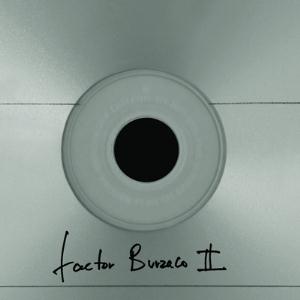
TRACKLISTING:
1. Sirens Dance (3:52)
2. Aging Backwards (5:20)
3. Flanders Fields (5:05)
4. Sleepless Night (5:59)
5. Horny (2:57)
6. Little Bird (4:09)
7. Duck on a Walk (3:25)
8. The Greatest Kick of the Day (3:23)
9. Never Lose your Mind (2:43)
10. Love Song (5:27)
11. Purple Frog (5:05)
LINEUP:
Jonathan Callens – drums, backing vocals (9)
Jouni Isoherranen – bass, backing vocals (5, 9)
Gabor Humble Vörös – guitar, vocals
Pol Mareen – saxophone
Pedro Guridi – clarinets, backing vocals (5)
Pieter Claus – marimba, vibraphone, percussions
With:
Lisa Jordens – backing vocals (3, 5, 6, 7, 8)
Hanneke Osterlijnck – backing vocals (3, 6)
Joriska Vanhaelewyn – backing vocals (2)
Juan Carlos Torres Iturra – Spanish vocals (6)
Leika Mochan – backing vocals (9)
Attila Czigany – harmonica (6)
Joris Buysse – flute (6)
Fre Vandaele – whistle (3, 4)
Wouter Vandenabeele – violin (4)
Megan Quill – vocals (10, 11)
Franciska Roose – vocals (10, 11)
Many will almost automatically associate Belgium with the more left-field fringes of progressive rock, as the country has contributed essentially to the development of the subgenre with outfits such as Univers Zéro, Present, and Aranis. Though those bands seem to enjoy a rather daunting reputation in the more traditionalist prog circles, even a superficial listen to Humble Grumble’s debut album, Flanders Fields, will come as a positive surprise to those who tend to dismiss anything even remotely ‘avant-garde’ as noisy or depressing.
Humble Grumble was first formed in 1996 in the Belgian region of Ghent by Hungarian guitarist/vocalist Gabor Humble Vörös and other former members of a folk/jazz ensemble called Dearest Companion. Though that first incarnation disbanded after some time, the band was reformed in more recent times as a multicultural outfit, with members hailing from Finland and Chile as well as Belgium. The result was Flanders Fields, released in the first half of 2011 by Italian label AltrOck Productions.
While placing Humble Grumble under the capacious RIO/Avant umbrella may be the easiest solution when it comes to the very popular activity of classifying a band or artist, it also paints a rather limited picture of this decidedly intriguing outfit. A sextet conspicuously lacking in keyboards, but employing instead saxophone, clarinet, vibraphone and marimba, Humble Grumble also avail themselves of the collaboration of a host of guest artists, which lends their music a well-rounded, almost orchestral quality.
On the other hand, Flanders Fields is very much a song-based effort, with 10 out of 11 tracks featuring vocals, none of them running above 6 minutes. The whole album clocks in at a very restrained 43 minutes, which allows the listener to fully appreciate the music without getting overwhelmed by it (as is far too often the case with modern releases). The short running time, however, may somewhat deceptive, since each of the tracks is densely packed with tempo changes, intriguing vocal interplay and rhythmic solutions of frequently astounding complexity – all flavoured with unashamed eclecticism. This makes for a surprisingly listener-friendly mixture, though obviously not in a commercial sense.
The most surprising thing about the album, though, is its strongly upbeat nature, and that in spite of the distincly subdued nature of the title-track, whose lyrics juxtapose somber remembrances of WWI with equally pessimistic musings on the state of modern-day Belgium. With this one notable exception, Flanders Fields brims with nonsensical, somewhat anarchic humour that inevitably brings to mind the likes of Frank Zappa and Gong. The latter band is probably the most evident term of comparison for Humble Grumble – down to its multi-national configuration. Mainman Gabor Humble’s engaging vocal approach is quite reminiscent of Daevid Allen’s (as well as Robert Wyatt and Caravan’s Pye Hastings), with the frequent intervention of female backing vocalists bringing to mind more than a fleeting echo of those notorious “space whispers” (especially in the self-explanatory “Horny”, a short, lively Gong-meets-Zappa number). Drums and percussion play a large, not merely propulsive role, while Humble’s guitar is nicely complemented by the warm, expressive tones of the reeds, so that keyboards are never really missed. In spite of the ‘avant’ tag, there is a lot of melody and very little dissonance in Humble Grumble’s sound, as well as plenty of diverse ‘world music’ influences.
Rather uncharacteristically Flanders Fields opens with its only instrumental track, “Sirens Dance”, in which Eastern touches and slow, almost sultry jazzy tones spice up a dynamic, cheerful fabric. “Aging Backwards” introduces Gabor Humble’s melodic yet keenly ironical vocals, as well as displaying his remarkably versatile guitar playing; while the title-track, as previously hinted, brings a note of sober melancholy, the beautiful female harmony vocals and the clear, tinkling sound of the marimba adding a lyrical, romantic tinge. “Sleepless Night”, with its Gentle Giant-inspired vocal harmonies, keeps up the understated mood of the title-track, enhanced by the wistful voice of the violin – a mood that recurs in the mellow, almost delicate “Never Lose Your Mind”, where the lush vocal harmonies evoke Queen as well as Gentle Giant. On the other hand, the more upbeat numbers such as the folk-meets-Avant “Little Bird”, with vocals both in English and Spanish, and the funny, lively “Duck on a Walk” conjure echoes of Canterbury; while the Gong and Zappa references emerge most clearly in the last couple of songs, “Love Song” and “Purple Frog”, though tempered by gentler passages led by reeds or female vocals.
Warmly recommended to devotees of Gong and the Canterbury scene in general – as well as any act that uses humour as an essential ingredient of its music – Flanders Fields can nonetheless appeal to all but the most staunchly conservative prog fans. In particular, those who are not crazy about lengthy epics will be impressed by the way in which Humble Grumble manage to introduce a high level of complexity within the restrictions of the song format. A very enjoyable release from another excellent addition to the already outstanding AltrOck Production roster.
Links:
http://www.humblegrumble.be/
